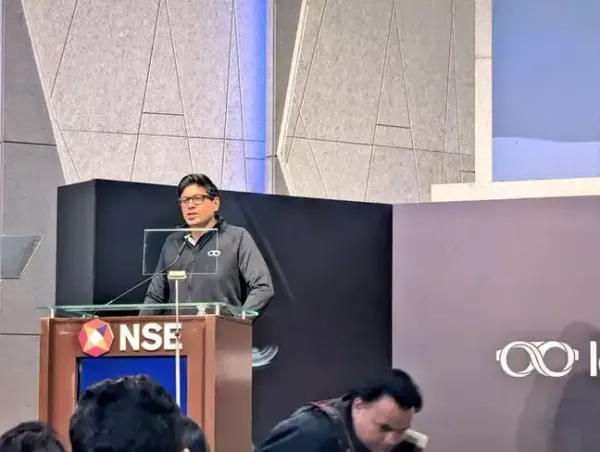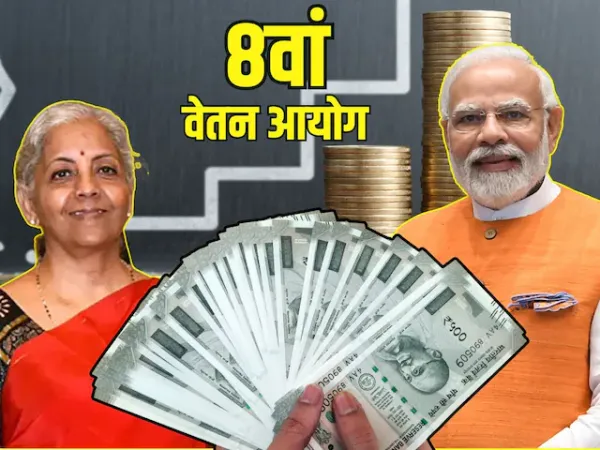Eyewear giant Lenskart officially entered the stock market today, marking a major milestone for the company. At the listing ceremony, CEO Peyush Bansal addressed the buzz around the company’s valuation, making it clear this was never the driving force behind the journey.
“We didn't build Lenskart to build a valuation... we did it to give eyesight to India,” said Bansal.
Valuation concerns
Speaking to ET last month, Bansal responded to discussions about Lenskart’s IPO valuation being considered high for a retail business. He explained that determining valuation isn’t the role of entrepreneurs. “Valuation is a conversation between buyers and sellers,” said Bansal. “We’ve been profitable for years, generate strong cash flows, and most of our fundraises have been secondaries. So, pricing isn’t something I focus on.”
The eyewear retailer’s pricing sparked a debate over whether Indian startups are overvalued as they enter the stock market. Analysts noted that there is concern that mutual funds, which receive most of their investments from households, may be paying steep prices for companies that are yet to prove sustained profitability.
DSP Asset Managers, for example, publicly defended its anchor investment in Lenskart after facing criticism on social media about the IPO’s valuation. The fund described the business as “strong and scalable”, while acknowledging that the deal was “expensive”.
Nonetheless, Bansal has time and again emphasised that valuation is not the priority. He even shared a note to shareholders before the listing, reminding them that Lenskart was built not to chase valuations, but to reach people across the country.
During the listing ceremony, Bansal also emphasised that his focus lies in working with investors who share Lenskart’s long-term vision, and credited them for much of the company’s progress.
“...every partner we’ve had pushed us to think bigger and longer term. That’s far more important than any single valuation number,” he noted.
He added, “When the bell rings, it won't feel like a victory to me but like a reminder. We'll go back to work.”
On Monday, Lenskart debuted on the stock exchanges at a slight discount to its issue price of Rs 402 per share. The stock opened 3% lower on the BSE at Rs 390 and 1.7% down on the National Stock Exchange at Rs 395 per share. At the time of listing, its market value on the NSE stood at Rs 68,527 crore.
Lenskart’s initial public offering (IPO) opened on October 31 and closed on November 4. Investor enthusiasm was high, with total bids reaching 28.26 times the number of shares on offer. It was driven mainly by qualified institutional buyers (QIBs) and non-institutional investors (NIIs).
“We didn't build Lenskart to build a valuation... we did it to give eyesight to India,” said Bansal.
Valuation concerns
Speaking to ET last month, Bansal responded to discussions about Lenskart’s IPO valuation being considered high for a retail business. He explained that determining valuation isn’t the role of entrepreneurs. “Valuation is a conversation between buyers and sellers,” said Bansal. “We’ve been profitable for years, generate strong cash flows, and most of our fundraises have been secondaries. So, pricing isn’t something I focus on.”
The eyewear retailer’s pricing sparked a debate over whether Indian startups are overvalued as they enter the stock market. Analysts noted that there is concern that mutual funds, which receive most of their investments from households, may be paying steep prices for companies that are yet to prove sustained profitability.
DSP Asset Managers, for example, publicly defended its anchor investment in Lenskart after facing criticism on social media about the IPO’s valuation. The fund described the business as “strong and scalable”, while acknowledging that the deal was “expensive”.
Nonetheless, Bansal has time and again emphasised that valuation is not the priority. He even shared a note to shareholders before the listing, reminding them that Lenskart was built not to chase valuations, but to reach people across the country.
During the listing ceremony, Bansal also emphasised that his focus lies in working with investors who share Lenskart’s long-term vision, and credited them for much of the company’s progress.
“...every partner we’ve had pushed us to think bigger and longer term. That’s far more important than any single valuation number,” he noted.
He added, “When the bell rings, it won't feel like a victory to me but like a reminder. We'll go back to work.”
On Monday, Lenskart debuted on the stock exchanges at a slight discount to its issue price of Rs 402 per share. The stock opened 3% lower on the BSE at Rs 390 and 1.7% down on the National Stock Exchange at Rs 395 per share. At the time of listing, its market value on the NSE stood at Rs 68,527 crore.
Lenskart’s initial public offering (IPO) opened on October 31 and closed on November 4. Investor enthusiasm was high, with total bids reaching 28.26 times the number of shares on offer. It was driven mainly by qualified institutional buyers (QIBs) and non-institutional investors (NIIs).








